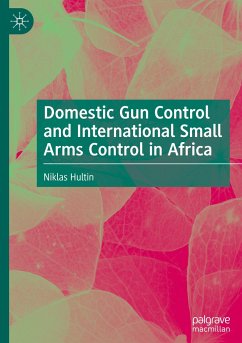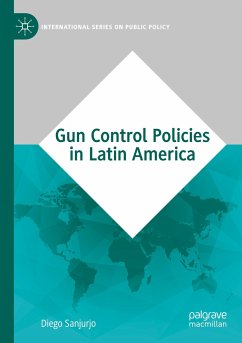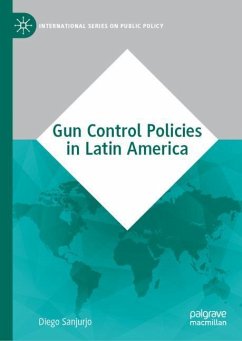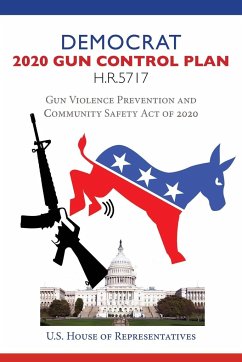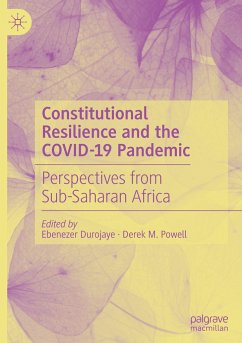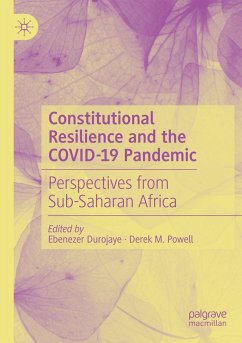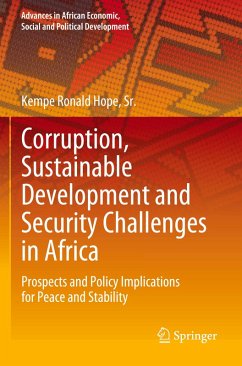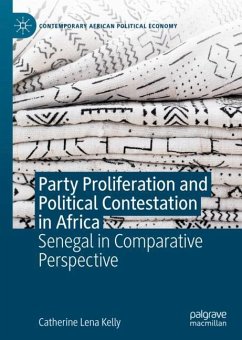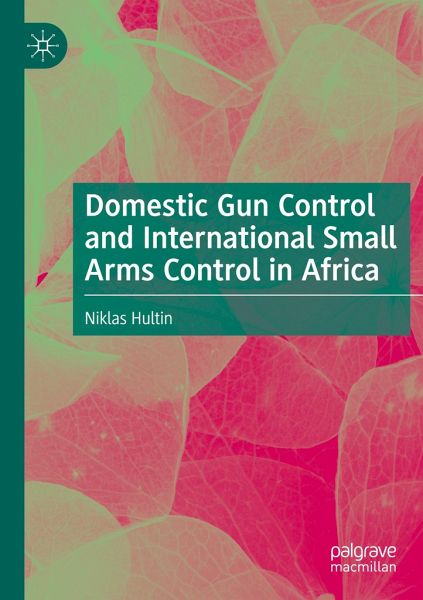
Domestic Gun Control and International Small Arms Control in Africa
Versandkostenfrei!
Versandfertig in 6-10 Tagen
106,99 €
inkl. MwSt.
Weitere Ausgaben:

PAYBACK Punkte
53 °P sammeln!
This book, based on field research in the West African country of The Gambia, explores how domestic gun control is shaped by international efforts and how local actors interact with international organizations or opt not to do so. The book also shows how the question of who can have what kind of gun under what circumstances is an intrinsic question to modern societies across the world, but it is seldom one that is addressed in sub-Saharan Africa except in cases of post-conflict countries. Small arms control and gun control are often treated as separate efforts, with the former the domain of in...
This book, based on field research in the West African country of The Gambia, explores how domestic gun control is shaped by international efforts and how local actors interact with international organizations or opt not to do so. The book also shows how the question of who can have what kind of gun under what circumstances is an intrinsic question to modern societies across the world, but it is seldom one that is addressed in sub-Saharan Africa except in cases of post-conflict countries. Small arms control and gun control are often treated as separate efforts, with the former the domain of international actors such as the United Nations and the latter being of concern to the domestic politics of countries such as the United States. By focusing on a country that has never seen the outbreak of a civil war, the book is able to disentangle the complex roots of gun control in Africa, its origins in colonial era legislation, its reverberations across social life, and how it shapescontemporary understandings of groups ranging for security guards to hunters.



